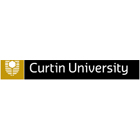Bachelor of Applied Science (Interior Architecture) (Honours)
Bachelor of Applied Science (Interior Architecture) (Honours)
Interior designers offer creative, proactive and innovative design solutions. In this course, you’ll develop a solid foundation in critical design thinking and theory relating to human occupation and explore how the human experience is central to interior architecture. Through work-integrated learning opportunities, you’ll work on real projects, undertake site visits,…
Categories
COURSE DESCRIPTION
Interior designers offer creative, proactive and innovative design solutions.
In this course, you’ll develop a solid foundation in critical design thinking and theory relating to human occupation and explore how the human experience is central to interior architecture.
Through work-integrated learning opportunities, you’ll work on real projects, undertake site visits, create site documentation and deliver client briefings. You may also pitch design concepts to real clients and practitioners.
You will learn key employability skills including communication, creative problem-solving and collaborative work practice. You’ll also learn to be mindful of environmental impact and sustainability by anticipating different scenarios and predicting the consequences of current actions.
The content of this course has been overseen by an advisory board made up of renowned industry practitioners. This approach ensures that you’ll graduate aligned with industry aspirations.
You’ll complete at least 80 hours of relevant work experience before graduating.
Specialisations
As part of the course, you can choose to study a specialisation to gain fundamental knowledge in an area that aligns with interior architecture. Specialisations include:
Animation and Game Design
Architecture
Construction Management
Design Thinking and Visual Communication
Digital Design
Graphic Design
Photography
Principles of Planning
Urban Design and Planning.
Honours
This course is a four-year embedded honours program that incorporates applied design research in the final year. This provides you a significant advantage when entering the workforce as the demand for research-informed design is increasing in the industry. You also have the option to exit the course after three years, before the final year. If you choose this option, you will exit with a Bachelor of Applied Science (Interior Design).
What jobs can the Interior Architecture lead to?
Careers
Interior designer
Furniture and lighting designer
Heritage and conservation specialist
Indoor comfort consultant
Event and exhibition designer
Designer of immersive environments
Colour consultant
Design stylist
Design writer
Industries
Interior design and architecture
Building and construction
Furniture and furnishing
Lighting
Arts and culture
Trade shows, exhibitions and events
Publishing
Commercial Interior Designer
Residential Interior Designer
What you’ll learn
Identify, explain and apply the disciplinary concepts in interior architecture
Develop creative practices and ways of building knowledge that are critical and reflective
Evaluate and synthesise information from various sources across multiple disciplines to inform the responsive processes related to the design and experience of interior architecture
Select and use effective and appropriate visual, spoken, written, graphic and technical communication techniques appropriate for academic and professional environments
Use a range of available technologies appropriate to interior architecture
Adapt and respond to new ways of learning and global interaction to develop a self-directed approach
Develop awareness and sensitivity around community and its role in Interior Architecture with particular attention to context and global differences in perceptions and interpretations of concepts and practice
Recognise and understand cultural diversity in particular indigenous perspectives and knowledges. Respect individual human rights and include concepts of social sustainability, social equity and cultural diversity into interior architecture
Work independently and collaboratively demonstrating relevant professional and ethical practices
REQUIREMENTS
Students from different countries should have qualifications equivalent to Australian Year 12 and a scaled mark of at least 50 in English, Literature, or English as an Additional Language or Dialect.
IELTS (International English Language Testing System) – Listening, Reading, Writing, and Speaking – 6.0; Overall band score 6.0; TOEFL Score: 79 (overall); Reading 13; Listening 13; Speaking 18; Writing 21; Pearson Test of English – Listening, Reading, Writing, and Speaking – 50; Overall band score 58; TOEFL (Test of English as a Foreign Language) and PBT (Paper Based Test) – 570 and 4.5 in TWE; C1 Advanced Formerly known as Cambridge English: Advanced (CAE) 176 with 169 in Reading, Writing, Listening and Speaking. C2 Proficiency Formerly known as Cambridge English: Proficiency (CPE) 190 with 176 in Reading, Writing, Listening and Speaking.
EDUCATIONAL INSTITUTION
Curtin University is Western Australia’s largest and most culturally diverse university with Australia’s third largest international student population. Around 60,000 students from more than 130 countries study a Curtin degree, at locations including Perth, Margaret River, Kalgoorlie, Sydney, Malaysia and Singapore. Our cultural diversity adds a rich and valuable dimension to the campus atmosphere, preparing all graduates to live and work effectively in an increasingly global environment. We offer a range of industry-aligned undergraduate and postgraduate courses in business, humanities, health, engineering and related sciences. We also have a long-standing focus on Aboriginal and Torres Strait Islander education and culture, supported by our Centre for Aboriginal Studies.Curtin is widely recognised for its practical research that is focused on solving timely, real-world problems. In recent years our research activity has grown significantly, driving our rapid rise up the international university rankings.As a university that never settles, we will continue to develop existing partnerships and establish new ones in areas relevant to our research and teaching.




